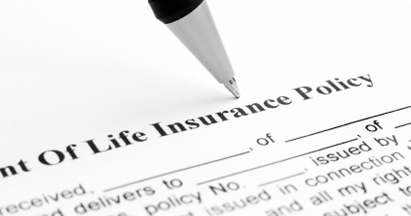For decades, I have studied and learned a wide variety of ways to explain the differences between term and whole life insurance. Regardless of how you choose to review the key differences with your client, their decision almost always boils down to cost. Is it affordable and will it fit into their budget?
When you remove the real estate downturn and mortgage problems of the past five years, owning a home has traditionally been a much better long-term decision versus renting. Simply put, there are very few individuals or families who would willingly choose to rent a home versus own a home if they could afford to own.
Not only does ownership carry a psychological and status gain, but there are also long-term financial and tax benefits that make home ownership the better strategy. So, it should not be difficult to determine who is a more suitable candidate to rent a home versus consider ownership.
Four Easy Steps to Explain the Key Differences
The simplest way I have found to review the main differences between term versus whole life insurance is using a four-step, side-by-side comparison. (Note: The following is based on the assumption that your client is healthy.)
Term Insurance:
1.) Lower Price – Like renting an apartment versus buying a home, term insurance is known for its lower price. It too is an entry-level product that is more affordable.
2.) Price Increases – One of the major disadvantages of renting is that landlords usually increase their rental prices over time. Likewise, whether someone owns 10, 20 or 30-year term, at renewal time, the price goes up.
3.) Protection Ends – Another disadvantage of renting is that landlords reserve the right to terminate the lease under certain conditions. Term insurance is designed to eventually become more expensive and less affordable in your old age, when you need it the most. In other words, term insurance is priced to expire before you do.
4.) No Equity – A renter has no equity at the end of a lease and, if they want to remain in the property, must renegotiate a new lease with the landlord. At the end of a term policy, there is no cash value. Then, if you are still healthy and want to maintain coverage, you must reapply. Regardless of your health condition, the cost will increase significantly because you are older.
Whole Life Insurance:
1.) Higher Price – Whole life has a higher price tag which, as you will clearly see from the next three points below, has a purpose and a value. One should expect to pay more to own a home versus renting, but keep in mind that price is only relevant in the absence of value.
2.) Price Remains Level for Life – Just like owning a home via a 30 or 15-year mortgage, the price of whole life insurance remains the level for life. Most whole life policies also reach a point where the payments are no longer required, and yet the policy and cash value remain in force for life.
3.) Protection Lasts a Lifetime – Just as the name implies, whole life insurance is priced to last as long as you do, providing coverage or “a roof over your head” (which usually increases in value) for your entire life.
4.) Builds Equity – As mentioned earlier, just like building equity in your home, the payments you make in a whole life policy create a cash value. This cash value accumulates on a tax-deferred basis over time at least at the guaranteed interest rate, and also provides access and liquidity via withdrawals or loans. So yes, the price of whole life insurance is higher. But similar to owning a home, your payments create a value over time, either via the equity in your home or a guaranteed lifetime “roof over your head” for your family. So over time the price is higher but the cost (or net effect on your wealth) is usually zero.
It’s Perfectly OK to Rent versus Own
After you use this four-step analogy to explain term versus whole life, the next question I always ask is the following: “If you/we hypothetically assume that I am going to make the annual payments for you, which one would you choose to own: term or whole life insurance?” Invariably your clients would always choose whole life insurance – if you remove the affordability factor.
Bottom line, term and whole life insurance are both excellent products. The reality is that term insurance is a more affordable and suitable fit for most of the clients we serve. However, it is our job to properly educate and empower individuals, families and business owners who can afford to own life insurance versus rent this all-important protection. In either case, the main objective for every financial professional should be to ensure the right amount of coverage versus selling the features and benefits of whole life insurance.
 AgenteNews Insurance Producer's Online Resource
AgenteNews Insurance Producer's Online Resource




